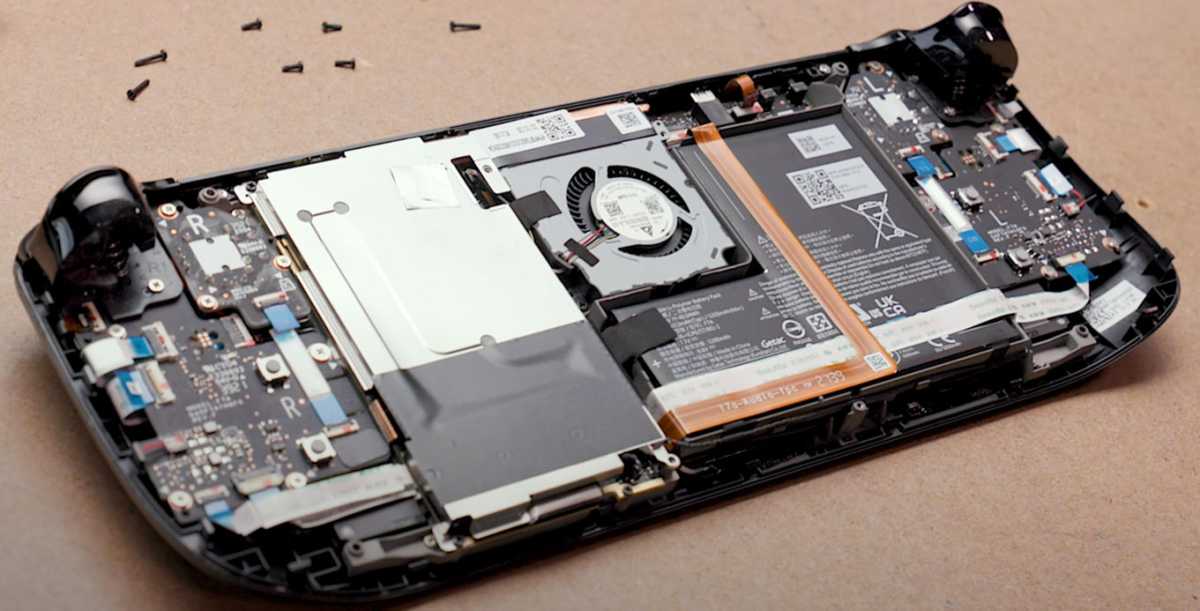Valve offers juicy details on the next-gen Steam Deck
The portable powerhouse that is the Steam Deck was easily the biggest gaming hardware story of the year (and a deserving Full Nerd award winner). Now that Valve has nailed down its production issues, it’s looking at improving the hardware that goes out the door — and working on the next generation, of course. We know the Steam Deck 2 is happening, something that wasn’t a given at the start of the year. But a new interview has shed some light on exactly what Valve wants to achieve with a new hardware revision.
Speaking to The Verge, Valve engineers Lawrence Yang and Pierre-Loup Griffais offered a few critical peeks into the future of the current Steam Deck and exactly what the company wants out of a new machine. The whole lengthy piece is worth a read if you want to get into the nuts and bolts. But here are five critical take-aways if you’re short on time:
New Steam Decks are shipping with a less-noisy fan. We’ve covered this before: Early Steam Deck models came with exhaust fans supplied from two separate vendors, one of which was a lot louder than the other. Valve is still using components from both Huaying and Delta, but a bit of sound-absorbing foam seems to have addressed the noise issue. You can still order the Huaying fan (the less-noisy one) from iFixit — check out our how-to video for more info.
Valve is open to making a new Steam Controller. The Steam Deck is, in many ways, a natural evolution of Valve’s previous and less-successful hardware ventures: the Steam Link and Steam Controller. The latter’s haptic touchpads and highly-customizable controls are an integral part of the Steam Deck. According to Yang, Valve is interested in a new Steam Controller, if not necessarily committed to one at the moment. “I think it’s likely that we’ll explore that because it’s something we wanted as well.” An official Valve controller, or a licensed third-party option beyond the usual Xbox and PlayStation designs, would be an obvious boon to the Steam Deck’s docked experience.
A Steam Deck audio mixer is coming. Gamers on Windows often rely on the OS’s ability to control volume for programs independently. At the moment the Steam Deck can’t do that, unless a specific game offers volume controls in its own settings menu. But it’s coming in the near future. The software team is working on tweaks to the Linux-based software to make it work, though adding a custom user interface will be a big part of that.
Mobile games might come to the Steam Deck. There are plenty of high-profile mobile games that eventually create a PC version, but the Steam Deck is a natural fit for pretty much any game designed for a horizontal touchscreen. According to Griffais, mobile developers have expressed an interest in publishing their games directly to Steam and the Steam Deck. Valve is open to the idea, so long as touchscreen-only games are clearly labeled as such.
Valve
The Steam Deck 2 will have a better screen and battery. The Nintendo Switch has had two major hardware revisions since launch: a SKU-only update that boosted battery life, and a new model with an OLED screen. Valve is looking to address both of those points in a next-gen Steam Deck. Exactly what those improvements would look like — A new high-refresh screen panel? A physically larger case to fit a bigger battery? — weren’t commented upon.
Surprisingly, the engineers downplayed any possible improvements to the Steam Deck’s power or performance in the short term, despite the upcoming revisions in AMD’s RDNA 3 mobile graphics. Apparently keeping all its users on a similar level of hardware power, game console-style, is a valuable asset for developers. Reading between the lines, that does mean that any changes made to the hardware for the next generation probably won’t result in a huge price increase, keeping one of the Steam Deck’s most attractive features intact: its affordability.

Adam Patrick Murray/IDG
At the moment Valve is selling every Steam Deck it can make, and then some, and players seem more than satisfied with it in general. That means that any major updates to the hardware are a long way off. I wouldn’t expect a second-gen Steam Deck, or even a mildly improved model, to hit the market in less than six months. A year or more out from this point is, frankly, a lot more likely. We have some other suggestions for what we want in the next-gen Steam Deck.
For all the latest Technology News Click Here
For the latest news and updates, follow us on Google News.
